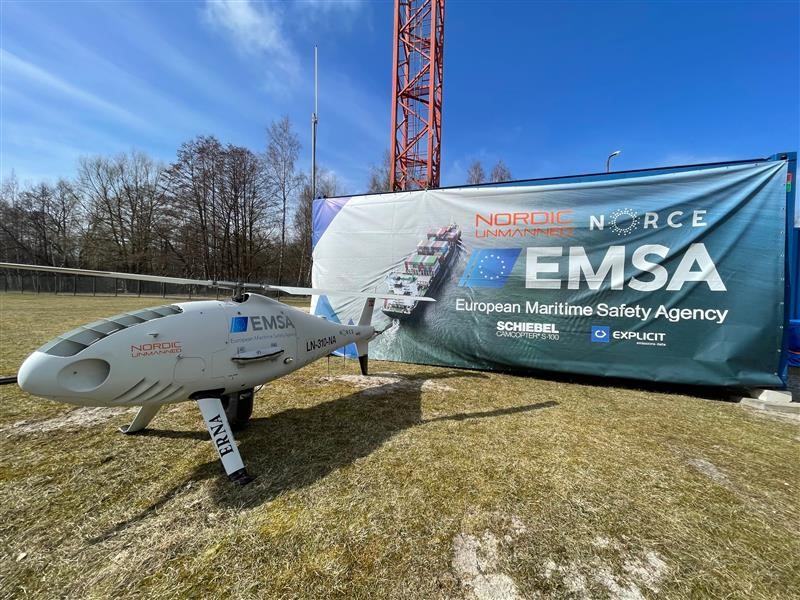Lithuania enlists EMSA’s RPAS services to monitor ship emissions
In response to a request from the Environmental Protection Department of Lithuania’s Ministry of the Environment, EMSA is providing the country with Remotely Piloted Aircraft System (RPAS) services to assist in monitoring ship emissions, protect the marine environment and improve maritime safety.

The services which began on 23 March will run for three months and will see EMSA RPAS being used to calculate the sulphur content of the fuel being used by the passing ships. Sensors on board the RPAS will measure the emissions from the exhaust plumes of vessels travelling in the main shipping lanes and when at anchorage around the Lithuanian port of Klaipeda. The sulphur content of marine fuel in this Sulphur Emission Control Area (SECA) should be no greater than 0.1%.
While great interest has been shown in the emissions monitoring capability of EMSA’s RPAS service, the Environmental Protection Department will also be working in collaboration with other Lithuanian authorities - including the Navy, MRCC and fisheries control services – to conduct other types of maritime surveillance missions.
The aircraft being used for this service is the Schiebel CAMCOPTER® S100 and it is under contract to EMSA via a consortium led by Nordic Unmanned AS. The model is a vertical take-off and landing drone and is fitted with gas sensors and cameras covering optical and infrared spectral ranges to better detect vessel plumes and conduct maritime surveillance as required.
All the information is transmitted in real-time to trained users through EMSA’s RPAS Data Centre. Records of the emission measurements are encoded automatically into the THETIS-EU information sharing system. This system is operated by EMSA to assist in the enforcement of the EU sulphur directive as well as to support port inspectors when targeting vessels to be inspected.
ABOUT RPAS
RPAS services, offered free to all EU Member States by EMSA, have been developed to assist in ship emission monitoring and maritime surveillance operations and can operate in all seas surrounding the European Union. RPAS services can provide support to traditional coast guard functions, including search and rescue and pollution prevention and response. The services are offered to Member States individually and as part of EMSA’s regional RPAS strategy, which allows multiple coast guard functions in several EU Member States to be supported by one or more RPAS services. Further expansion of RPAS regionally is planned in 2021 and 2022.
ABOUT EMSA
The European Maritime Safety Agency (EMSA) is a decentralised agency of the EU, based in Lisbon, Portugal. EMSA serves the EU’s maritime interests for a safe, secure, green and competitive maritime sector through support for pollution prevention and response, maritime surveillance, safety and security, digitalisation and the provision of integrated maritime services, and technical assistance.
Any requests for further information can be sent to: information@emsa.europa.eu
-
Published08.04.2021
-
Updated08.04.2021
